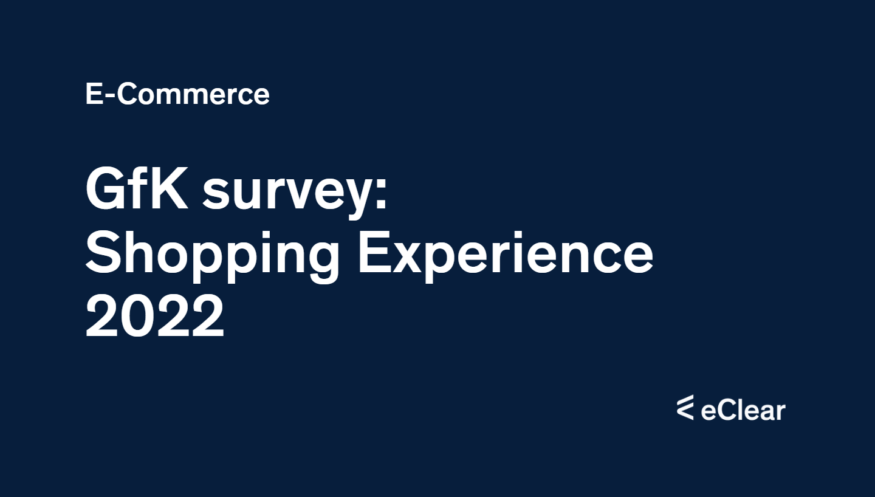At the end of the year, numerous shopping occasions tempt shoppers: On Black Friday, Cyber Monday and Christmas, many shops and online shops entice shoppers with attractive offers and atmospheric shopping experiences.
Shopping experience 2022 – between functional and emotional
E-commerce has fundamentally changed the way we shop or make bookings. Many items such as fashion (52 per cent), electronics (47 per cent) and entertainment items (45 per cent) now prefer to end up in the virtual shopping basket. After all, online shops score points with their 24/7 offer (62 per cent), the time saved by delivery (61 per cent) and easy and convenient shopping (58 per cent). In contrast, 56 per cent of the respondents are convinced that they can physically experience and test the products and that the purchases can be taken away directly. Interaction with brands and products in shops is important to 18 to 29-year-olds (45 per cent): they value the shopping experience and “showrooming” the most. Many online retailers, therefore, offer temporary showrooms or are now pursuing an omnichannel approach with their shops.
Customers expect digital payment options and freedom of choice when paying
Today, 60 per cent of Germans prefer to use their card or mobile payment methods when shopping in shops. More than one in three Germans (36 per cent) have left a shop or not gone in because only cash was accepted. For 90 per cent of those surveyed, card payment is one of the essential service components when shopping in shops. Freedom of choice when paying is vital from the consumer’s perspective. Payment methods must fit into people’s everyday digital lives, especially for online shopping.
“Banks and savings banks understand that their customers expect payment cards that always work everywhere – in e-commerce, in m-commerce, at home and abroad. This is exactly what we are enabling by upgrading our Maestro system to Debit Mastercard,” explains Dr Peter Robejsek, Country Manager Germany at Mastercard.
That is why more and more banks are turning to debit cards. In doing so, they are fulfilling their customers’ desire for a powerful, modern and secure payment directly linked to their current account. This is because most Germans (63 per cent) want payments made with their card to be debited directly from their account.
Contactless payment and mobile payment are becoming increasingly popular
Fuelled by the corona pandemic, contactless payment methods have established themselves as the standard due to changing customer behaviour. 66 per cent of consumers already pay contactless by card, smartphone or smartwatch – 60 per cent even several times a week. As before, the card (80 per cent) is in the lead in contactless payment, followed by mobile payment via smartphone (18 per cent) or wearable (2 per cent). Above all, 18- to 29-year-olds (29 per cent) reach for the smartphone for contactless payments. In terms of the most frequently used mobile payment options, Apple Pay (33 per cent) overtakes Google Pay (31 per cent) in the respondents’ favour for the first time since the survey.
One in three would pay at the checkout using biometric payment methods
Today, 18 per cent already use biometric features for authentication when paying online. Will we only pay at the shop checkout by smiling or waving? This is not a dream of the future because one in three Germans (34 per cent) can imagine using biometric data to pay in shops. The first pilot projects to test the new technologies are already underway. A significant advantage is the security aspect of biometric payment methods, since the biometric characteristics of each user are unique. In addition, no one has to remember a PIN or password any more. Technology still has much potential.
44 per cent of Germans want protection for online payments
Payment methods must meet consumers’ high expectations regarding data and consumer protection. When it comes to practical and popular online shopping, consumers expect a simple payment process (46 per cent), fast (41 per cent) and above all, secure (58 per cent). 44 per cent of respondents also want protection against fraud.
“Trust is our most important asset, and that’s why we ensure that Mastercard payments are always safe and secure. However, if something goes wrong, Zero Liability Protection ensures that Mastercard cardholders are always protected from fraud and financial loss due to card misuse when making card payments – whether in stores, online or mobile. Provided they adequately protect their card and the associated PIN from unlawful use. Even if a paid service is not provided, the payment can be claimed from the card-issuing bank or savings bank and reclaimed – this also applies in the case of insolvency of the provider,” explains Dr Peter Robejsek.
Source: mastercard.com







